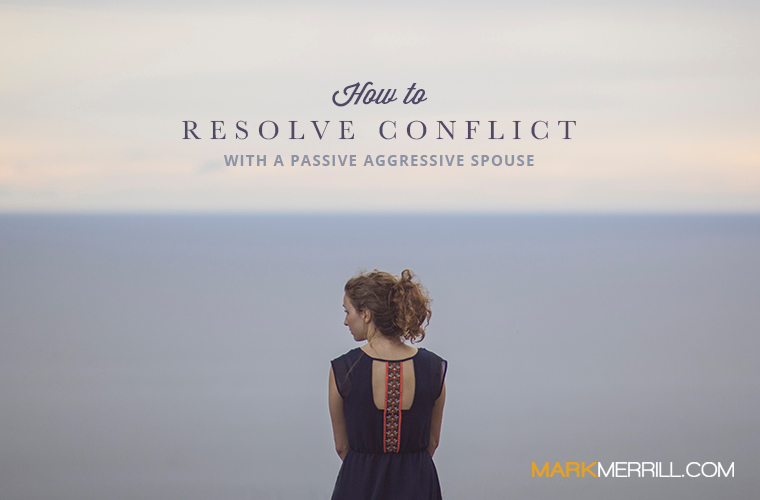Ever hear “Fine!” from your hurt, angry spouse when you knew things were really NOT fine? Or ever hear “I’m just kidding!” when you knew the cruel, hurtful words they said were more honest than your spouse was admitting? If so, then you might be having a conflict with a passive-aggressive spouse.
I’ve written before about the need to be assertive in communicating with your spouse, instead of passive, aggressive, or passive-aggressive. In today’s increasingly divisive culture, aggressive voices are loud, passive voices are soft or silent, and the passive-aggressive…they are the most confusing to deal with, especially when it comes to marital conflict. Why? Because a passive-aggressive person is trying simultaneously to express and mask their anger. The person often retaliates in a subtle, silent way instead of speaking their mind; they express their negative feelings in an indirect manner, rather sharing their disagreement or disapproval directly to the other person.
Healthy conflict is replaced with sarcasm, faking innocence of intent, and innuendo. When this works into a marriage, it can lead to bitterness, and a nasty wall of unmet expectations; the constant disappointment can create hopelessness. It’s a non-stop emotional roller coaster- a game in which the rules and the score, seem to change constantly, without warning.
If your spouse tends to be passive-aggressive, all hope is not lost. But it takes some extra effort, especially when dealing with conflict, to draw out their real, honest feelings, to encourage them out of those patterns and to contribute to resolution. One of the biggest reasons this is hard is because passive-aggressive people tend to lash out or pull back, out of fear that honesty in conflict will destroy the relationship or lead to their abandonment.
Here are some tips on how to resolve conflict with a passive-aggressive spouse.
Don’t try to resolve conflict when emotions are high.
Emotionally-charged situations make passive-aggressive people more anxious and more likely to dig into their unhealthy patterns. Give some time and cool things down. If voices and blood pressure are rising, the passive-aggressive spouse is likely to drop a verbal “out of nowhere” bomb, to deflect from their real feelings, maybe even trying to change the subject entirely with something like “Well, this reminds me of when you….” Try telling them in a calm voice that you need to take a few minutes to allow both of you to cool down, so you can stay focused on the main issue.
Take turns describing the root problem from each perspective.
Without judging or interrupting, giving each other a chance to explain the problem validates each of you. It can reduce the anxiety and increase the odds that honesty can be had throughout the conversation -a key to conflict resolution. If they try to put it back on you with something like, “Why are YOU so upset?” gently say something like “We can get back to that in a minute, but I really need and want to hear exactly what YOU see as the real problem here, and I won’t interrupt.”
Don’t try to read their mind.
It can be so tempting, when you are familiar with their tendencies, to read into what they are saying and react to the subtext. But don’t. If you want to avoid letting the drama-creating imagination of a passive-aggressive person drive the conversation, avoid second-guessing. You might ask “Is there something else you’re trying to say? Because I’m not wanting to assume I always know what you mean.” It can show respect while also drawing out more honest dialogue.
Resist the urge to react to the barbs and sarcasm.
This goes with not reading minds. Stay focused and on point, but be gentle when pulling the conversation back on target. For example, if they say something obviously sarcastic like “Congrats on nailing that new recipe!” when you obviously messed it up, don’t take the bait. Treat it as a compliment and just say “thank you.” Take them at face value even when their tone is inconsistent. It will force them to be more clear or direct, which is what they need to do. And tell them you intend to do that. It may take some getting used to on their part.
Agree on options, decisions, and consequences as you move to resolution.
Avoid the urge to decide and dictate. Bringing them into an honest review of the options you have in resolving the conflict is key to them sharing ownership with you of the results. If you just declare “Fine, we’ll just do such-and-such then!” you open up excuses in their minds for later conflict…you made the decision, and they had to just live with the consequences. But involving them removes that excuse. It puts skin in the game from both of you.
How else do you deal with the passive-aggressive people in your life? Share your ideas with me below.



